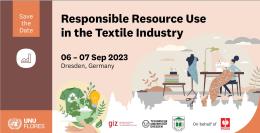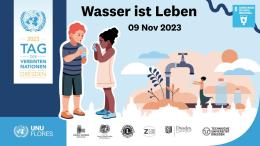Thirty countries together committed more than USD 4 billion in development aid to address modern slavery, forced labour, human trafficking, and child labour between 2000 and 2013, according to a new report released on Thursday by the United Nations University (UNU).
The report, “Official Development Assistance and SDG Target 8.7: Measuring Aid to Address Forced Labour, Modern Slavery, Human Trafficking and Child Labour”, offers the most detailed and robust analysis available about countries’ development spending commitments to achieve Target 8.7 of the UN Sustainable Development Goals (SDGs), whereby 193 countries have pledged their commitment to take effective measures to eradicate these human rights abuses.
The report by Delta 8.7 – The Alliance 8.7 Knowledge Platform, a project of the UNU Centre for Policy Research (UNU-CPR), analyses and visualizes how official development assistance (ODA) — government aid that promotes and specifically targets the economic development and welfare of developing countries — was committed, by whom, on what, and where. It finds that the average annual global ODA commitments to address Target 8.7 exploitation increased significantly between 2000 and 2013 (from around USD 119 million to approx. USD 430 million).
The report uses new data sets, draws on an innovative research methodology, and utilizes a newly developed language processing algorithm to analyse a data set of some 1.2 million aid projects, identifying more than 6,000 that were directly related to Target 8.7 between 2000 and 2013.
“This new data set, and the patterns it reveals, point to important questions about how governments decide where to spend taxpayers’ money to address forced labour, modern slavery, human trafficking and child labour,” said UNU-CPR Director Dr James Cockayne, a co-author of the report.
The report calls for more robust data coordination and tracking of ODA commitments to strengthen the tracking of progress towards Target 8.7, and highlights the need for sharing and centralization of ODA and non-ODA spending to enable researchers and policy actors to begin to identify the “effective measures” required to reach that target.
The report is the first research product of Delta 8.7, a knowledge and research platform developed by UNU-CPR as a contribution to Alliance 8.7, a global multi-stakeholder effort to accelerate progress towards SDG Target 8.7.



